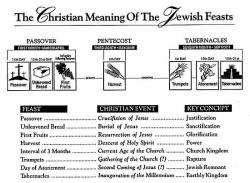How to study the Bible (1)?
Studying the Bible can be a deeply rewarding and spiritually enriching experience. Here are some tips for effective Bible study:
Choose a Translation: The Bible is available in various translations, each with its own style and readability. Choose a translation that resonates with you and is easy for you to understand. Common translations include the New International Version (NIV), King James Version (KJV), and English Standard Version (ESV).
Set a Regular Schedule: Establish a consistent time and place for your Bible study. This helps create a routine and ensures that you prioritize your study time.
Pray for Understanding: Begin your study with a prayer, asking for guidance and understanding. Seek a humble and open heart to receive the teachings and wisdom from the Scriptures.
Use Study Aids: Utilize study aids such as concordances, commentaries, and Bible dictionaries to gain deeper insights into the text. These resources can help you understand historical context, cultural nuances, and the meanings of specific words.
Start with a Plan: Consider following a Bible reading plan. Plans can focus on specific themes, books, or topics, and they provide structure to your study. You can find reading plans in print or online.
Take Notes: Keep a notebook or journal dedicated to your Bible study. Write down verses that resonate with you, notes on what you've learned, questions that arise, and personal reflections.
Read in Context: When studying a particular passage, read it in the context of the surrounding verses and chapters. This helps you understand the broader narrative and the intended message.
Ask Questions: Don't hesitate to ask questions as you read. What does this passage teach about God, human nature, or moral principles? How does it relate to other parts of the Bible?
Seek Community: Engage in Bible study with others. Join a small group or attend a Bible study class at your church. Sharing insights and discussing the Scriptures with others can deepen your understanding.
Apply What You Learn: Bible study isn't just about gaining knowledge; it's about applying the teachings to your life. Consider how the lessons you've learned can impact your daily decisions and actions.
Memorize Key Verses: Memorizing verses that are particularly meaningful to you can help you draw on the wisdom and guidance of the Bible in everyday situations.
Stay Patient and Persistent: Bible study is a lifelong journey. It's okay to encounter challenging passages or have moments of confusion. Stay persistent and trust that your understanding will grow over time.
Use Online Resources: There are many online resources, websites, and apps designed to facilitate Bible study. These tools often provide access to multiple translations, commentaries, and study plans.
Reflect and Meditate: Take time to reflect and meditate on what you've studied. Consider how it applies to your life, and listen for any personal messages or insights.
Remember that Bible study is a deeply personal and spiritual endeavor, and there is no one-size-fits-all approach. The key is to approach your study with an open heart, seeking a deeper relationship with God and a better understanding of His word.
Here are some tips for effective Bible study:
- Pray before you start. Ask God to help you understand His Word and to apply it to your life.
- Choose a passage to study. You can start with a book that you're interested in, or you can choose a passage that you've heard about in a sermon or Sunday school class.
- Read the passage carefully. Pay attention to the details and try to understand the overall meaning of the passage.
- Ask yourself questions. What is the main point of the passage? What is the author trying to teach me? How does this passage apply to my life?
- Look up cross-references. Other verses in the Bible can help you to understand the passage you're studying.
- Write down your thoughts. This will help you to remember what you've learned and to reflect on it later.
- Apply what you've learned. Ask yourself how you can put the Bible's teaching into practice in your life.
Here are some additional tips that may help you with your Bible study:
- Find a study partner or group. Studying with others can help you to stay motivated and to learn from each other.
- Use a study guide or commentary. A study guide or commentary can provide you with additional information and insights into the passage you're studying.
- Be patient. It takes time to understand and apply the Bible's teaching. Don't get discouraged if you don't understand everything right away.
Remember that the Bible is a living document that is meant to be applied to our lives. As we study the Bible, we can learn more about God, His character, and His plans for us. We can also learn how to live a life that is pleasing to Him.













